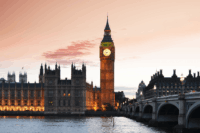
What is Marxism?
Regular contributor John Redwood MP gives us an insight into the misery of Marxism and why the alternative is much more attractive.
Some people bandy around the label Marxism too easily, without recognising what Marxism is. It might help the debate to remind people what Marx himself recommended by way of public policy in his much circulated Communist Party Manifesto. It contained ten wide ranging policy proposals, to recast the citizen's relation with the state and to give the state a much mightier role in the economy and society.
Just one of the ten proposals has gained widespread support today and been adopted throughout the advanced world. That was the last proposal, that the state should offer free education to all children, and child's labour in factories should be made illegal. This is now common ground for all UK political parties.
Three proposals related mainly to property. One demanded the confiscation of all property of emigrants and rebels. One required the abolition of all rights of inheritance. A third was the most wide ranging, seeking the abolition of all rights to property in land, with the state owning all land and charging rents. It was this system which helped lead to famines and agricultural disasters in communist countries trying something like it. In the USSR output of food was much stronger from the limited number of independent farm owners that survived, only to led to brutal attacks upon them for being successful.
Three policies proposed a massive extension of nationalised ownership. All banks would be converted into a single state monopoly bank. Communications and transport would be nationalised. There would also be substantial state take overs of industry and factories. This system led the USSR to fall behind the west technically and in terms of productivity. The Soviet economy was heavily skewed towards weapons production and heavy industry at the expense of consumer goods, owing to the low levels of per capita national income achieved.
There would be a heavy and progressive income tax. This was a good way to drive out talent and create a closed impoverished economy by advanced world standards.
There would be a requirement on everyone to work, with "industrial and agricultural armies" established to enforce the employment duty.
The state would combine agriculture with industry, "gradually abolishing the distinction between town and country by a more equable distribution of the populace around the country."
I spent my early years in politics exposing why nine of these ten proposals caused misery, low incomes and a lack of freedom. I recommended the alternative, the Popular capitalist manifesto, based around the promotion of ownership for all and greater personal freedoms. How much of a threat are Marxist ideas again today? What can we learn from Venezuela? Why do advocates of Marxism as a political programme always claim states that followed their ideas were not true Marxist states, because they usually create poverty and tyranny combined.

John Redwood is a former Conservative MP for Wokingham and a former Secretary of State for Wales. For more on UK tech and innovation policy, read Sean Kohli on why Britain must back its founders to win the AI race.









